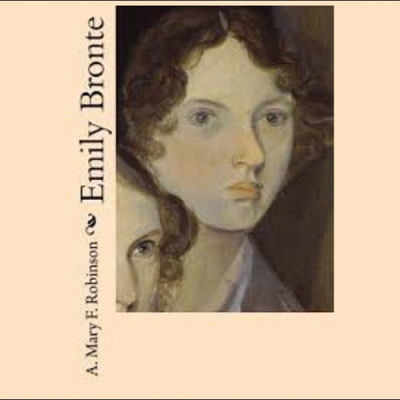Gondal: The Fanciful World of Emily Brontë


I was a student of ninth grade when I first discovered Emily Brontë. The final exams were over and I was slouching around the house when I found this volume in our old bookshelf-- the cover being half torn with the silhouette of a man and woman standing under the tree on a hill-top. Grabbing the book I went to sit at my favorite spot in the veranda with the winter sunlight warming my toes. I expected the book to be a romance and yes, romance it was indeed; even after completing an entire dissertation on Emily Brontë, I am still romancing her novel Wuthering Heights.
Many across the world are in love with Heathcliff and his Cathy, and regret that the author did not write any other novel. Yet with that single novel and some two-hundred and eighty poems, Emily remains a classic figure in literature and an enigma to the literary mind. I am certainly not going to even attempt at dispelling that aura of mystery surrounding her, but I will pursue a lesser known aspect of the second of the Brontë sisters—her poems on Gondal. I must admit though that my interest in these poems rises from my fascination with the novel itself. In significant ways, Wuthering Heights is a re-writing of the Gondal saga, which centres around a powerful female monarch called Augusta Geraldine Almeda (A.G.A.) in whom a reader might discern uncanny resemblances with Catherine Earnshaw. A careful reader would also recognize that unlike its various Hollywood representations, the novel is not merely a love triangle. It explores the freedom of one's spirit and love at its most elemental stage. And most of all, it reveals the complexities and possibilities of life.
Gondal is a fanciful world that Emily and her younger sister Anne developed and the poems are known as their Juvenilia. It was Fannie Elizabeth Ratchford, a librarian, scholar and author, who through extensive research, put together some eighty-four poems of Emily Brontë and reconstructed the story which was then published under the title, Gondal's Queen. The narratives of Gondal are juxtaposed with contemporary events like the Queen Victoria's ascent to the throne, or household activities of the Brontës. Augasta, for example, was a name proposed for the baby Queen Victoria, and many of the events and exploits of Emily's personal life were transformed into exploits of Gondal. For Emily, the imaginative land of Gondal was more real than the world she actually lived in. Apparently, after a Yorkshire trip that she took with her sister Anne in June 1845, she turned to write not about the trip but some "exciting event" in the Gondal saga (Disappearance 160). Then, after the publication and critical rejection of Wuthering Heights in 1847, Emily went to work on her Gondal poems again. It turned out as a realm that gave her sustenance in the bleak reality she resided in.
The storyline of Gondal is unusual considering that it was written by a Victorian woman. Augusta, the spirited protagonist of Gondal, indulges in a life of profligacy, taking lover after lover, and throughout the tale there are scattered pieces that record the agony of her discarded or betrayed lovers. Lord Elbë, her first love, groans at his last breath:
"Augusta— you will soon return
Back to that land in health and bloom
. . . .
For you'll forget the lonely grave
And mouldering corpse by Elnor's wave." (9. 63–68)
Even though A.G.A. does not abandon Elbë as she discards many other lovers later in her life, Elbë recognizes the strong life-force in his beloved and accurately predicts an exciting and radiant future for her. But A.G.A, too, reveals from time to time that it is excruciatingly painful for her to move on and she feels guilty and remorseful over her actions as she does after she deserts Lord Alfred for Julius Brenzaida:
I know I have done thee wrong—
Have wronged both thee and heaven—
And I may mourn my lifetime long
Yet may not be forgiven. (169. 9–12)
Thus, Gondal's Queen becomes an amazing exploration for a Victorian woman poet showing the exploits of a woman with many lovers. And little wonder that she decided to use a fanciful setting because it would have been impossible for a female author from her time to write such a tale and get away unscathed. Even when she transformed this saga into Wuthering Heights, a comparatively domesticated tale, she was castigated for immorality and obscenity. Contemporary critics failed to appreciate the passion that continues to amaze readers of later times, and saw only violence and the expletive language.
According to Edward Chitham, a renowned Brontë critic and biographer, the Gondal poems explore a sense of duality and her protagonist shows herself not merely as a licentious woman, but a philosopher too. Love in Emily's world, therefore, holds out no consolation. Her characters contemplate not merely physical separation or loss, but exile from one's self necessitated by time and change. A.G.A. mourns the deaths of Lord Elbë and Brenzaida, and often condemns herself for betraying others. Her words and actions reflect a restless soul that does not understand her own desires. The poem "Cold in the Earth," for example, is not just about reminiscing a lost love, but also about life and the series of changes it brings, resulting in an intense awareness of remembrance and forgetfulness:
Cold in the earth, and fifteen wild Decembers
From those brown hills have melted into spring—
Faithful indeed is the spirit that remembers
After such years of change and suffering! (182. 9–12)
Lyn Pykett, another well-known Brontë critic, identifies that Brontë's verses and novel equally explore that continual flow of life than passion and love, even though her protagonists seem intent on experimenting with love and emotion. The speaker A.G.A. in this particular piece regrets the time that is lost forever, and yet puts the natural flow of life above everything else. The last stanza of the poem points to the division of the self, dictated by the demands of life: "And even yet I dare not let it languish,/ Dare not indulge in Memory's rapturous pain." Emily Brontë's heroine begs forgiveness of her lost love because she chose to live and take new lovers. At the same time, the tone of the poem makes it clear that the process of such an alienation is painful in its isolation, despair, and retrospection. Moreover, her inability to give herself in love too, seems to cause intense dissatisfaction both for her and her unfortunate consorts. She moves from lover to lover, and grieves for both the dead and the living. It is interesting to note that even though she survives after losing her loved ones like Lord Elbë and Brenzaida, none of her lovers do after she deserts them. The theme is brought back in Wuthering Heights, where Catherine's lover and husband mourn her with equal fervour-- one destroying everything in a spirit of revenge and the other just wasting away in sorrow.
Many have called Emily Brontë's world a crazy one largely because there is a lack of moral correctness. Unlike most Victorian writers of her time, Brontë does not make her characters reap their harvests according to the so called "good" and "evil" deeds. However, her characters might act uncharacteristically enough to be condemned by her contemporaries, they also appear more real to the readers of our world.
Sohana Manzoor is an Associate Professor in the Department of English & Humanities at ULAB. She also is the Literary Editor of The Daily Star.

 For all latest news, follow The Daily Star's Google News channel.
For all latest news, follow The Daily Star's Google News channel. 



Comments